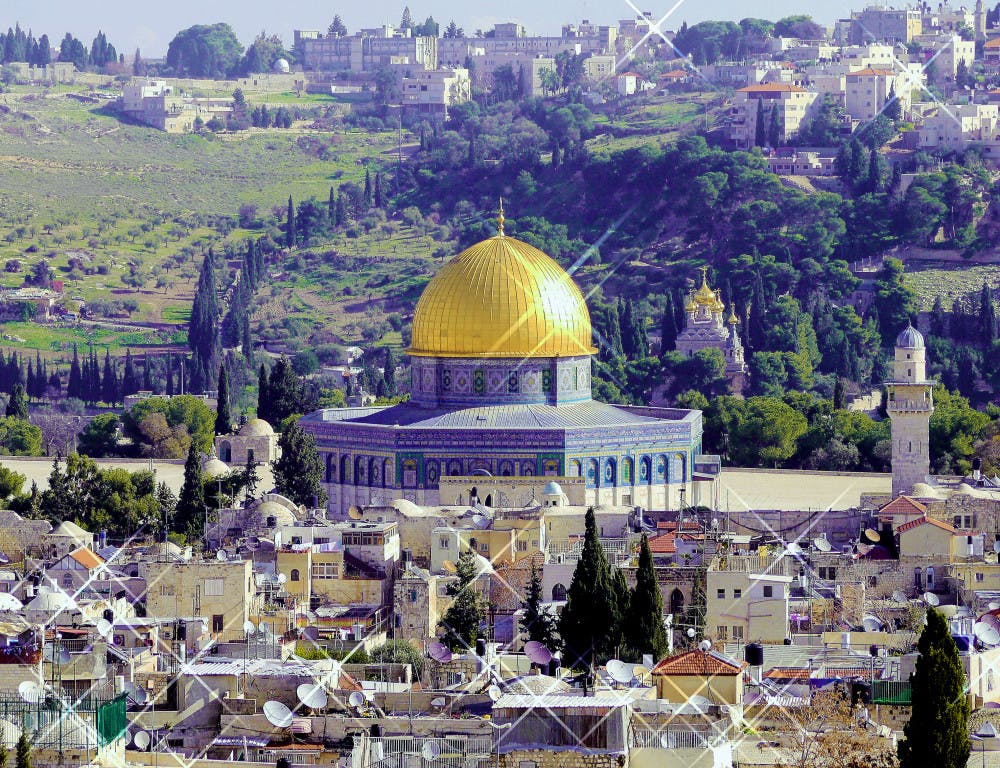Harrison Lavelle
Staff Writer
On Aug. 30, Israel has brokered a multifaceted deal with Palestine, according to AP. Israeli Defense Minister Benny Gantz met with Palestinian President Mahmoud Abbas and drafted the two-part agreement which yielded two major outcomes: a $155 million loan and a promise to “resolve the residency status” of around 5,000 families residing in the war-torn Israeli-occupied West Bank.
The meeting comes as a surprise to the international community following years of unwavering tensions between the two foes. A particularly virulent outbreak of conflict came to a head following rioting earlier this May, with rocket attacks perpetrated by the terror groups Hamas and the Palestinian Islamic Jihad (PIJ). While Israel’s ‘Iron Dome’ defense system prevented most enemy incendiaries from reaching their desired targets, a few rockets slipped through its grasp and resulted in damage.

Israel responded by undertaking a set of airstrikes on the Gaza Strip. The state of Palestine still has not obtained worldwide acknowledgement of its autonomy from Israel, though a majority of UN member states have accepted it as independent.
To better understand the significance of the recent meeting between two oft-warring factions, one must first understand the roots of the Israeli-Palestinian conflict.
The conflict began in 1947 when the UN drafted and approved a plan to partition Palestine for the sake of creating independent states for both the Jewish and Arab peoples. The British Empire had held the territory before the partitioning after acquiring it from the collapsing Ottoman Empire following World War I. By assenting to the establishment of a zionist state in their international territory, the British upheld the commitment to a Jewish Palestine that they had made in 1917. Given the post-war plight of many beleaguered Jewish survivors of the Holocaust, a Jewish Palestine seemed appealing to the victorious nations of Europe. Supplanted by European emigration, the previous Jewish minority began to garner enough influence to compete with the Arab population for political influence.
After the Arab faction in Palestine refused to approve of the partition, the Israeli-Arab war broke out, marking the onset of fighting that has continued sporadically to this day. The fight has revolved around the Gaza Strip and the West Bank, Palestinian territories that are almost fully controlled by Israel. Palestinian residents are still bound by the regulations and stipulations of Israeli law; the enforcement of such rules has led to many conflicts historically, including the aforementioned May outbreak. Many peace proposals have been proposed between the two sides, but it remains uncertain whether pressure from the international community will be enough to precipitate the realization of a two-state solution and the following cessation of conflict between the two states.
By providing economic support, Israel may be showing a newfound commitment to improving relations with the Palestinians, which AP reported that Gantz believes could reduce the amount of control that Israel must maintain over Palestinian territory in an effort to secure its own security. Equivalent to about $155 million US dollars, the loan will be reciprocated with tax funds that Israel normally collects for Palestinians. The Israeli government also plans to give out work permits to 15,000 more Palestinian workers while resolving the residency status of around 5,000 families.
While this meeting is certainly a notable first step in the direction of peace, a move as drastic as a two-state solution resulting in Palestinian autonomy remains up in the air. Though not as strict with regards to Palestinian policy as his predecessor Benjamin Netanyahu, Prime Minister Bennett is still described as “a hard-liner who opposes Palestinian independence” by the Associated Press.







